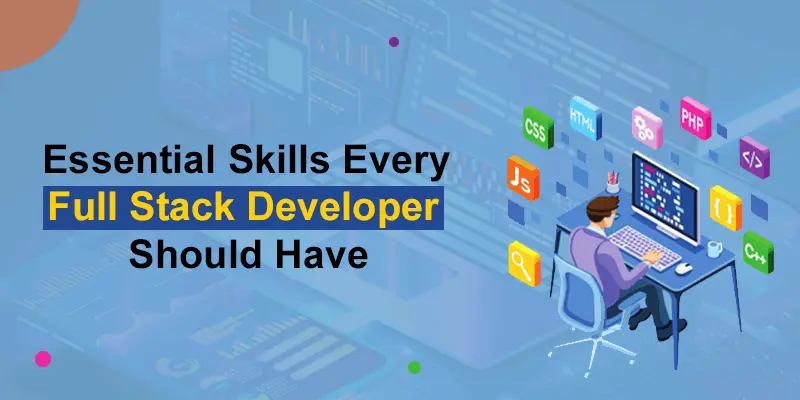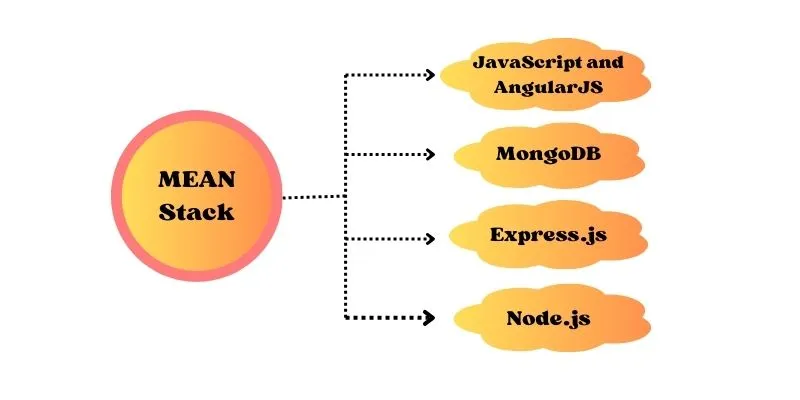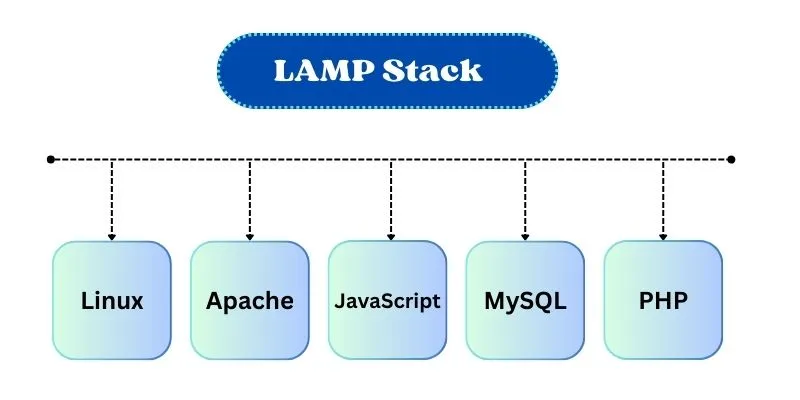
A Full Stack Developer is a professional with a comprehensive skill set that spans both front-end and back-end technologies, allowing them to engage in various aspects of website or application development. This multifaceted role entails involvement in projects from the initial stages of database design and user interface development to server-side scripting and deployment.
In the early phases of a project, full stack developers often collaborate closely with clients to thoroughly understand project requirements and objectives. This collaborative approach ensures that the development process aligns with the client's vision and goals. Through effective communication and analysis, full stack developers are adept at translating client needs into actionable development tasks.
On the front-end, proficiency in HTML, CSS, and JavaScript is crucial for creating visually appealing and responsive user interfaces. Full stack developers often leverage front-end frameworks and libraries, such as React, Angular, or Vue.js, to streamline development and enhance the user experience. They possess an understanding of cross-browser compatibility and adhere to web standards to ensure consistent performance across different platforms.
In the realm of back-end development, full stack developers showcase expertise in server-side languages like Node.js, Python, Ruby, or PHP. They are well-versed in utilizing server-side frameworks such as Express.js, Django, Ruby on Rails, or Laravel to build robust and scalable applications. Designing and implementing RESTful APIs is another key aspect of their skill set, enabling seamless communication between the front and back end.
Database management is integral to the full stack developer's role, involving proficiency in working with both relational (e.g., MySQL, PostgreSQL) and NoSQL (e.g., MongoDB) databases. They excel in designing, implementing, and optimizing database schemas, as well as executing database queries and performing indexing for enhanced performance.
Full stack developers may also leverage full stack frameworks like MEAN or LAMP, which provide a cohesive and structured approach to development, facilitating code organization and accelerating the overall process. Furthermore, their familiarity with version control systems, particularly Git, enables effective collaboration with other developers and ensures code integrity.
In the deployment and hosting phase, Full Stack developers demonstrate their ability to deploy applications to web servers or cloud platforms such as AWS, Heroku, or Azure. They possess knowledge of server configurations and maintenance, ensuring the smooth operation of the deployed applications.
Full stack developers are problem solvers with strong analytical skills, capable of identifying and resolving issues efficiently. Their role demands continuous learning and adaptation to emerging technologies, making them versatile contributors to the dynamic field of web development. For individuals aspiring to become adept full stack developers and stay ahead in the ever-evolving landscape of web development, considering enrolling in a reputable Full Stack Developer Course in Chennai can provide valuable insights and skills. This educational opportunity equips individuals with the knowledge and proficiency needed to navigate the complexities of full stack development and contribute effectively to the creation of robust web solutions.
What is a Full Stack Developer?
A full stack web developer is a professional with the expertise to develop both client and server-side software. Proficient in various technologies such as HTML, CSS, JavaScript, jQuery, Angular, or Vue for front-end development, and capable of programming servers using languages like PHP, ASP, Python, or Node for back-end development.
The term "full stack" refers to the comprehensive set of tools, technologies, and programming languages necessary for the complete development and deployment of projects. A Full Stack Developer possesses the skills to independently manage and complete a product, covering front-end UI programming, database management, server-side scripting, and even working on native application stacks, mobile stacks, or web application stacks. This versatility makes a Full Stack Developer akin to a Swiss Army knife in app development, capable of handling every aspect from the front-end to the back-end.
Now, let's delve into the essential skills required for a Full Stack Developer.
What do You need to know before becoming a Full Stack Developer?
A proficient Full Stack developer must possess a comprehensive understanding of both back-end and front-end technologies, version control systems, APIs, servers, applications, security best practices, data structures and algorithms, and user interface (UI) design.
In addition to technical expertise, soft skills, project management, and knowledge of DevOps are crucial for a well-rounded Full Stack developer. Several popular technology stacks exist, each comprising a set of tools and technologies. Two noteworthy examples are the MEAN stack and the LAMP stack.
a) The MEAN Stack Includes:

The MEAN stack is a powerful and popular set of technologies for building dynamic and scalable web applications. MEAN is an acronym that stands for MongoDB, Express.js, AngularJS (or Angular), and Node.js. This stack encompasses a range of technologies, each playing a crucial role in the development process.Check out FITA Academy for more information.
1. Front-end Framework
JavaScript
- A versatile programming language for building interactive and dynamic user interfaces on the client side.
AngularJS/Angular
- A comprehensive front-end framework developed by Google, providing a structured and organized approach to building single-page applications.
2. Database
MongoDB
- A NoSQL, document-oriented database.
- Stores data in JSON-like BSON format, offering flexibility for handling unstructured data.
- Suitable for applications with evolving and dynamic schemas.
3. Web-Framework
Node.js
- A runtime environment that executes JavaScript code server-side.
- Enables the use of JavaScript throughout the entire application stack, fostering synergy between client and server components.
- Facilitates server-side scripting and allows building scalable network applications.
4. Back-end Web Framework
Express.js
- A minimalist back-end web framework for Node.js.
- Streamlines the development of server-side applications by providing essential features and tools.
- Includes routing, middleware support, and template engines for building robust and scalable applications.
The MEAN stack combines the power of JavaScript, AngularJS or Angular, MongoDB, Node.js, and Express.js to create a Full Stack solution for developing modern and responsive web applications. Each component plays a specific role, contributing to the overall efficiency and cohesion of the development process. The stack's seamless integration allows for a consistent and streamlined environment, enabling developers to build dynamic and high-performance applications.
For those aspiring to understand the intricacies of Full Stack development and contribute effectively to the creation of robust applications, considering enrolling in a reputable Full Stack Developer Course in Bangalore can provide valuable insights and skills. This educational opportunity equips individuals with the knowledge needed to master the components of a Full Stack and navigate the complexities of the development process successfully.
b) The LAMP Stack Consists of:

1. Operating System
Linux
- An open-source operating system that forms the foundation of the LAMP stack.
- Known for its stability, security, and flexibility.
- Provides a robust environment for hosting web applications.
2. Web Server
Apache
- A widely-used open-source web server.
- Handles incoming HTTP requests and serves web pages to clients.
- Known for its reliability, security features, and flexibility through various modules.
3. Front-end Framework
JavaScript
- A versatile scripting language used for client-side web development.
- Enables the creation of dynamic and interactive user interfaces.
- Works in conjunction with HTML and CSS to enhance the user experience.
4. Database
MySQL
- An open-source relational database management system (RDBMS).
- Stores and organises data in a structured manner using tables.
- Supports SQL (Structured Query Language) for querying and managing the database.
5. Programming and Development
PHP
- A server-side scripting language designed for web development.
- Embedded within HTML, it facilitates the creation of dynamic web pages.
- Interacts seamlessly with MySQL to retrieve and manipulate data from the database.
The LAMP stack combines Linux as the operating system, Apache as the web server, JavaScript for front-end development, MySQL as the database, and PHP for server-side scripting. This stack provides a comprehensive and open-source solution for building and deploying web applications. Each component contributes to the overall functionality, security, and scalability of the stack, making it a popular choice for web developers and hosting environments. For individuals aspiring to harness the power of Full Stack development and enhance their skills in creating robust web applications, considering enrolling in a reputable Full Stack Developer Course in Coimbatore can provide valuable insights and skills. This educational opportunity equips individuals with the knowledge needed to understand and leverage each component of the stack effectively, contributing to their proficiency in Full Stack development.
Additionally, the MERN stack, similar to the MEAN stack, incorporates JavaScript-based technologies. Its main components are:
- Database: MongoDB
- Web Programming Framework: Express
- Building UI: Node.js and React
What are the Skills Required for a Full Stack Developer?
A proficient Full Stack developer must command a diverse skill set encompassing various frameworks, programming languages, and databases. For front-end development, expertise in HTML, CSS, JavaScript, jQuery, Angular, and ReactJS is indispensable, ensuring industry-ready capabilities.
In back-end development, a Full Stack Developer should possess a strong command of programming languages like PHP, Java, Python, Node.js, and Ruby. Given Java's pervasive popularity, acquiring robust Java Full Stack Developer skills is particularly beneficial.
Database proficiency is a key facet, requiring familiarity with MySQL, MongoDB, Oracle Database, and SQL Server. DevOps competencies, including practical knowledge of CI/CD (Continuous Integration and Continuous Delivery) and associated tools like GitLab and Jenkins, are essential.
Soft skills play a pivotal role, necessitating excellent communication, efficient time management, curiosity, and creativity. Venturing into mobile application development requires skills in React Native, while native app development demands proficiency in Kotlin and Swift.
Advantages of Becoming a Full Stack Developer
Possessing excellent UI skills empowers a Full Stack Developer to swiftly create and present small prototypes for clients. As knowledge expands across multiple technologies, they become a valuable resource for assisting team members facing challenges.
The autonomy of a Full Stack Developer streamlines project communication, significantly reducing the time needed for implementation. With the ability to independently make changes, there's no concern about coordinating efforts between separate front-end and back-end developers. The Full Stack developer, wearing both hats, maintains control over the entire project. This integrated approach enhances efficiency and ensures a cohesive and coordinated development process. For those eager to embrace the role of a Full Stack Developer and gain mastery over the entire project lifecycle, considering enrolling in a reputable Full Stack Developer Course in Madurai can provide valuable insights and skills. This educational opportunity equips individuals with the knowledge and proficiency to navigate both the front-end and back-end aspects of development, contributing to their effectiveness in the advantages of Full Stack development.
Full Stack Developer Jobs and Salary
Discussing average annual salaries, Full Stack developers can anticipate earnings of approximately $110,000 or more in Canada and Australia. In the United States, the annual salary average is around $112,000, while in Germany, it reaches €54,791 per year on average.
The following graphic provides a comprehensive breakdown of web developers' salaries in nine different countries, categorized into front-end, back-end, and Full Stack roles.
As per Glassdoor, a Full Stack software developer in India can achieve an annual average salary of 6.5 lakhs. These figures reflect the global variations in compensation for Full Stack developers, highlighting the impact of geographic location on earning potential within this dynamic field. For individuals aspiring to capitalize on the lucrative opportunities in Full Stack development and enhance their earning potential, considering enrolling in a reputable Full Stack Developer Course in Trichy can provide valuable insights and skills. This educational opportunity equips individuals with the knowledge to navigate the intricacies of Full Stack development and contribute effectively to the ever-growing demand for skilled professionals in the field.
